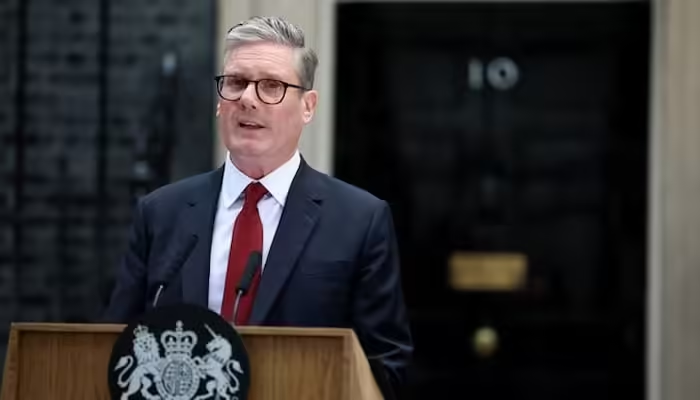Newly elected British Prime Minister Sir Keir Starmer wasted no time in making a significant policy shift by announcing the termination of the controversial Rwanda immigration plan. This move, announced during his first press conference after taking office, marks a stark departure from the previous administration’s approach to handling illegal immigration.
Announcement and Rationale
Speaking to the press, Sir Keir Starmer declared that the Rwanda project would be scrapped immediately, criticizing it for its inefficacy. “The Rwanda project was dead and buried before it even started,” he stated, highlighting that the plan would only have reduced illegal immigration by a mere one percent. He emphasized that the project was not a viable solution to the issue of illegal immigration and that more effective measures were needed.
Pre-Election Stance
Sir Keir Starmer’s decision to end the Rwanda project aligns with his pre-election promises. Before the elections, he had been vocal about his opposition to the plan, asserting that it was not the right way to handle asylum seekers. He had proposed instead that those failing to secure political asylum should be sent back to their countries of origin rather than to a third country like Rwanda.
Financial Implications
According to British media reports, ending the Rwanda project will save the UK a significant amount of money. The savings are projected to be 50 million euros next year, with continued savings expected in the subsequent years, including 2026. This financial benefit was a crucial factor in Starmer’s decision, as it would allow the government to allocate resources more effectively towards more practical and humane immigration solutions.
The Rwanda Plan: An Overview
The Rwanda immigration plan was introduced by the previous administration as a part of their efforts to curb illegal immigration. Under this plan, certain asylum seekers who arrived in the UK would be sent to Rwanda. Their asylum claims would then be processed in Rwanda under a five-year agreement. If their claims were successful, they would be granted refugee status and allowed to return to the UK. If not, they would either apply for asylum in Rwanda or seek refuge in another safe third country.
The primary goal of the plan was to deter people from making dangerous journeys to the UK in small boats to seek asylum. The British government at the time believed that by implementing this plan, they could significantly reduce the number of people attempting to enter the UK illegally.
Implementation and Legal Challenges
The plan stipulated that anyone entering the UK illegally after January 1, 2022, could be deported to Rwanda. The first flight carrying asylum seekers was scheduled for June 2022. However, the plan faced numerous legal challenges and widespread criticism from human rights organizations and activists.
Public and Political Reactions
The announcement to scrap the Rwanda plan has garnered mixed reactions. Supporters of Sir Keir Starmer have praised the decision as a step towards more humane and effective immigration policies. They argue that the previous plan was not only ineffective but also morally questionable.
On the other hand, critics of the decision argue that it might lead to an increase in illegal immigration. They believe that without the deterrent effect of the Rwanda plan, more people might attempt to enter the UK through unsafe and illegal routes.
Future Immigration Policies
Prime Minister Starmer has emphasized that his administration will seek to develop more comprehensive and humane solutions to address the issue of illegal immigration. He has called for international cooperation and a more efficient asylum processing system to ensure that those in genuine need of protection are supported while maintaining the integrity of the UK’s immigration system.
The termination of the Rwanda immigration plan by Prime Minister Sir Keir Starmer signifies a major policy shift in the UK’s approach to handling illegal immigration. While it marks the end of a controversial and widely criticized plan, it also opens the door for new strategies aimed at addressing the complex issue of immigration in a more effective and humane manner.



